Some people have very severe aphasia. Neuroanatomy through clinical cases by hal blumenfel, published by sinauer associates, an imprint of oxford university press. A stroke occurs when a blood clot or a leaking or burst vessel cuts off blood flow to part of the brain. Talking, listening and understanding, reading, writing and using numbers can all be affected in different ways. Saying something that doesn’t resemble a sentence.
Some people have very severe aphasia. Web aphasia is an impairment of language, affecting the production or comprehension of speech and the ability to read or write. Web aphasia classification chart based on fluency, comprehension, and repetition. It may take days or months. Aphasia diagnosis usually, a doctor diagnoses aphasia when treating you for a stroke, brain injury, or tumor.
Brain cells die when they do not receive their normal supply of blood, which carries oxygen and important. Web aphasia is an acquired neurogenic language disorder resulting from an injury to the brain, typically the left hemisphere, that affects the functioning of core elements of the language network. The symptoms of aphasia can range. The frontal lobe of your brain controls your cognitive (thinking) abilities, the temporal lobe processes memories, and the parietal lobe is in charge of. Leaving out words such as “is” or “the.”.
Web broca’s aphasia is characterized by: Talking, listening and understanding, reading, writing and using numbers can all be affected in different ways. It takes a lot of effort to say words or string together sentences. It may take days or months. Speech is difficult or halting, and some words may be absent. Web aphasia is an acquired neurogenic language disorder resulting from an injury to the brain, typically the left hemisphere, that affects the functioning of core elements of the language network. Another type of aphasia is primary progressive aphasia (ppa), which unlike the other types of aphasia is degenerative, meaning it gets worse over time. This usually results from damage to the portions of the brain that are responsible for language. But brain injuries resulting in aphasia may also arise from head trauma, from brain tumors, or from infections. However, cerebrovascular accident (cva) is the most common reason for a person to develop aphasia. Loss of blood to the brain leads to brain cell death or damage in areas that control language. Web types of aphasia chart. Different areas of your brain have various roles that are important for communication. The symptoms of aphasia can range. Brain cells die when they do not receive their normal supply of blood, which carries oxygen and important.
Saying Something That Doesn’t Resemble A Sentence.
People with this kind of aphasia have limited vocabulary and trouble finding the words they want to use. The most common types of aphasia are: The frontal lobe of your brain controls your cognitive (thinking) abilities, the temporal lobe processes memories, and the parietal lobe is in charge of. Aphasia diagnosis usually, a doctor diagnoses aphasia when treating you for a stroke, brain injury, or tumor.
Web Different Types Of Aphasia Aphasia Can Take Many Different Forms.
Leaving out words such as “is” or “the.”. Brain cells die when they do not receive their normal supply of blood, which carries oxygen and important. Talking, listening and understanding, reading, writing and using numbers can all be affected in different ways. Web aphasia is an acquired neurogenic language disorder resulting from an injury to the brain, typically the left hemisphere, that affects the functioning of core elements of the language network.
Aphasia Involves Varying Degrees Of Impairment In Four Primary Areas:
Web aphasia is caused by damage to one or more of the language areas of the brain. A struggle to form words. Neuroanatomy through clinical cases by hal blumenfel, published by sinauer associates, an imprint of oxford university press. However, a listener can still understand what.
Aphasia Is Loss Of The Ability To Understand Or Express Speech That Occurs After Some Types Of Brain Injuries.
Brain damage caused by a severe head injury, a tumor, an infection or a degenerative process also can cause. It may take days or months. A stroke occurs when a blood clot or a leaking or burst vessel cuts off blood flow to part of the brain. The symptoms of aphasia can range.
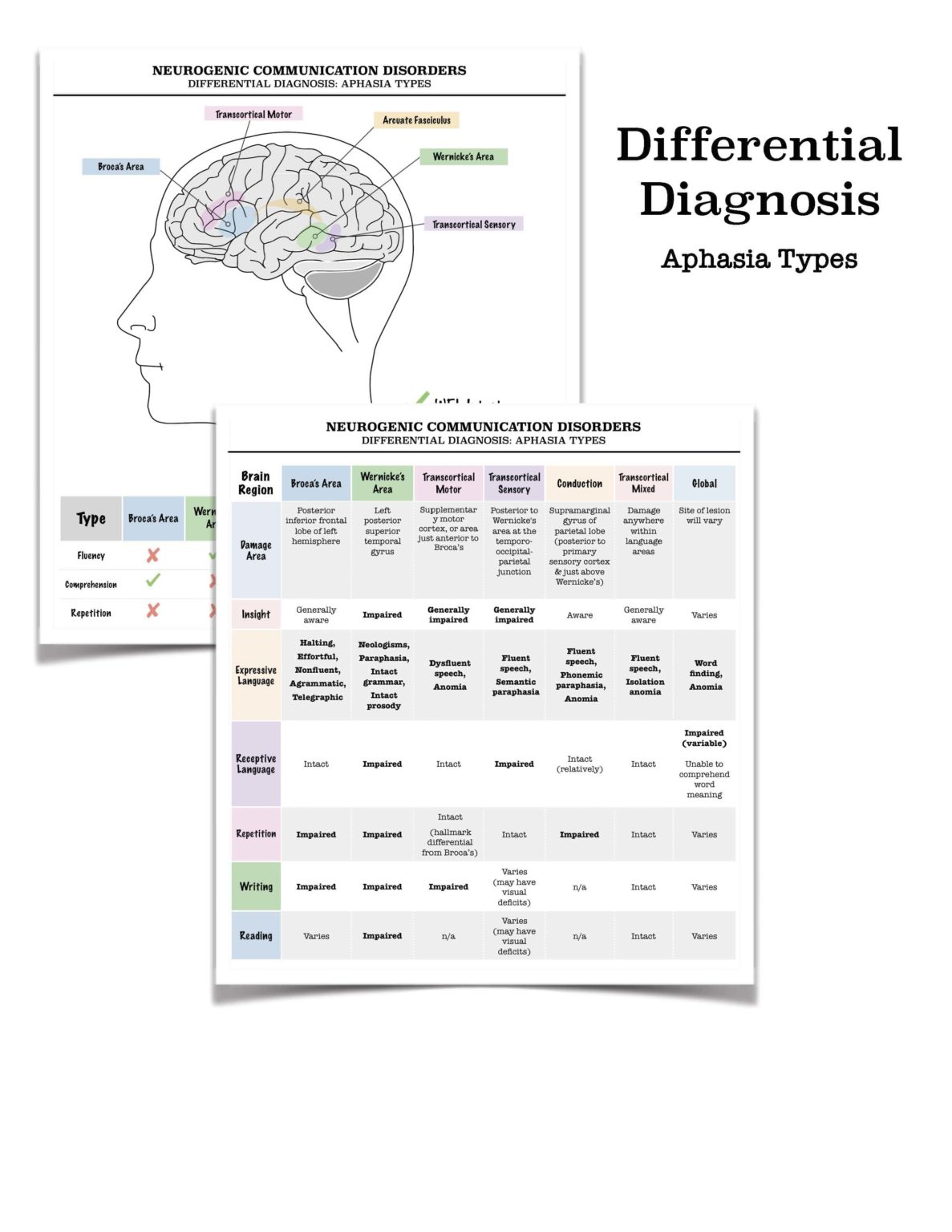
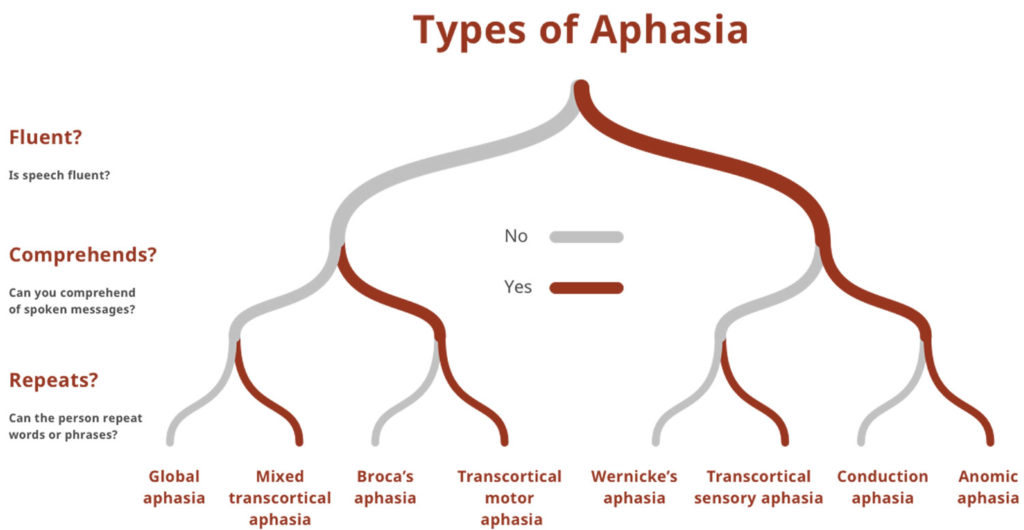


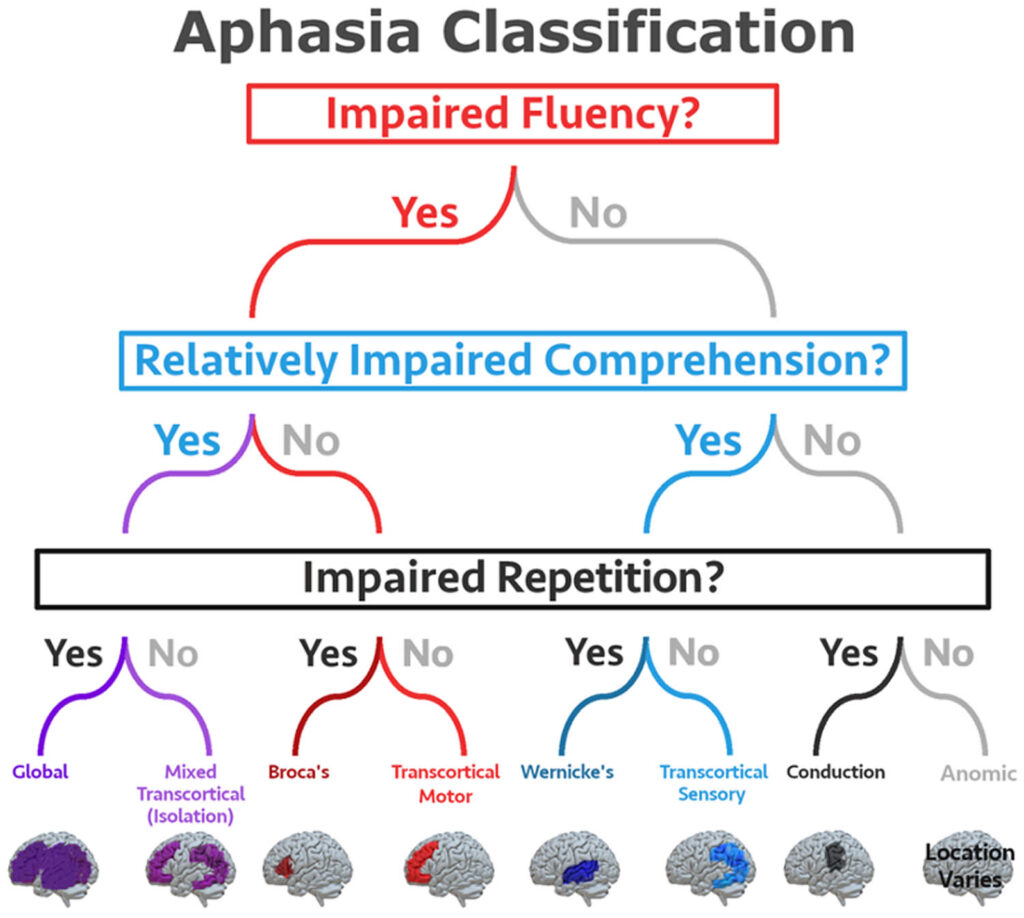

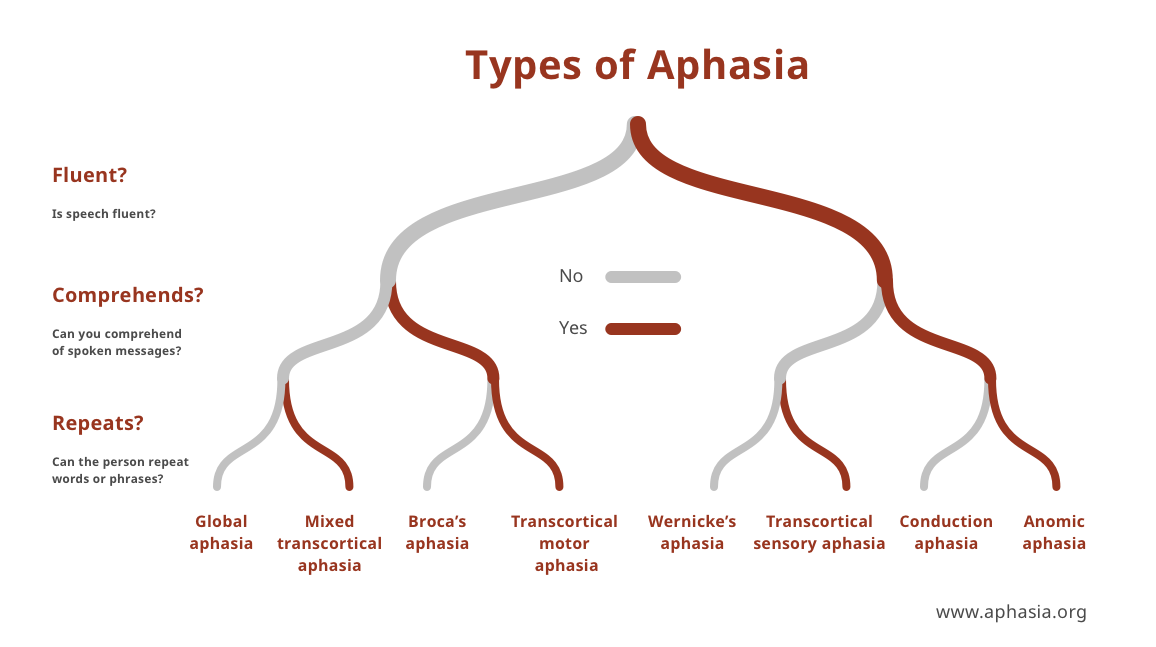
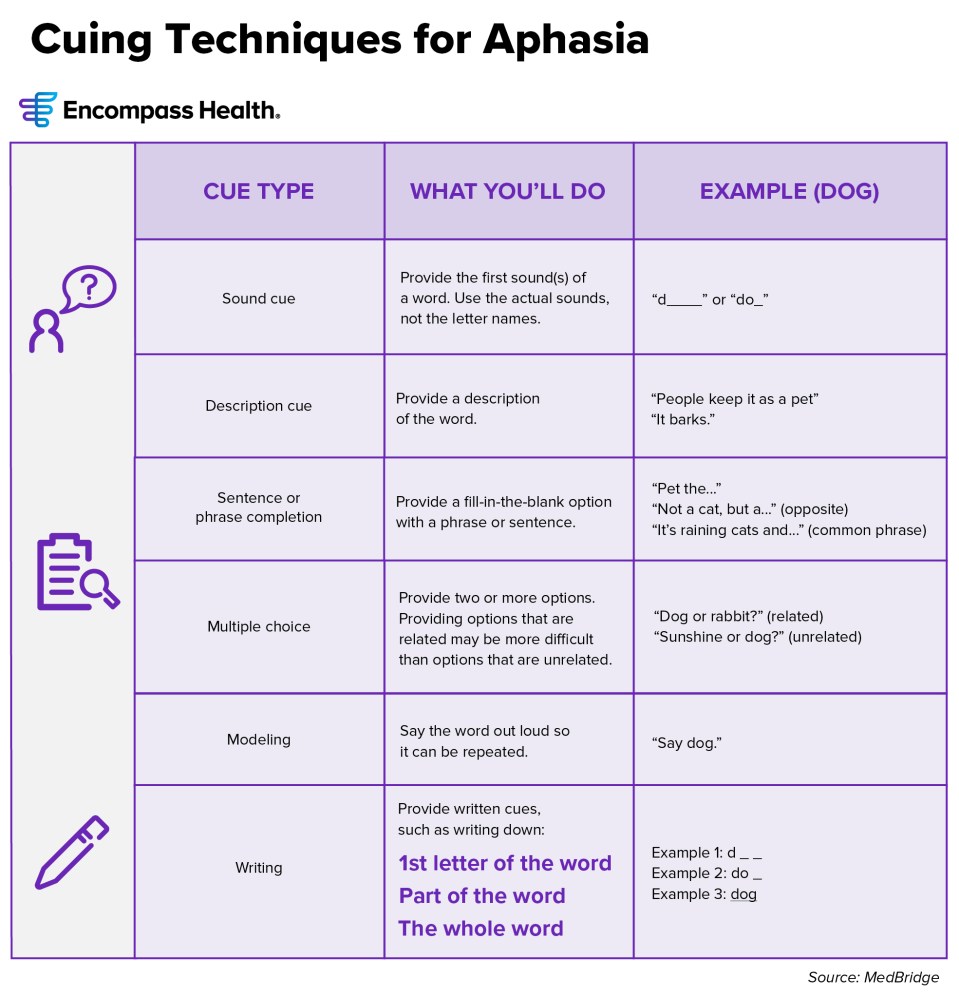

![What is Aphasia? [Intro & Types]](https://www.communicationcommunity.com/content/images/size/w1000/2020/11/Screen-Shot-2020-11-27-at-4.18.58-PM.png)